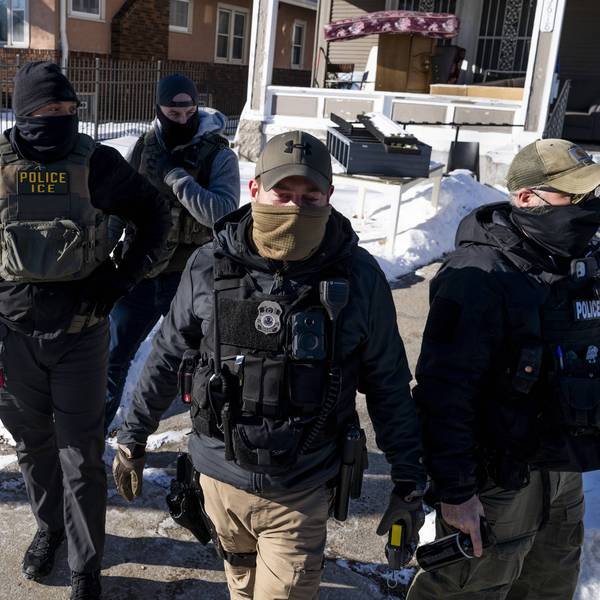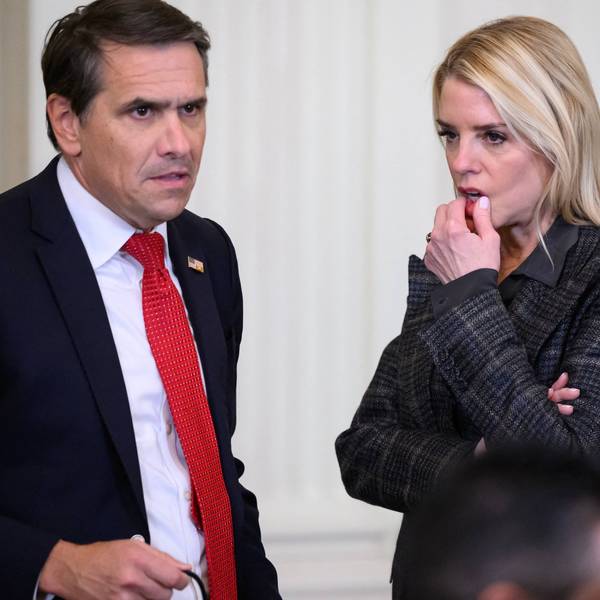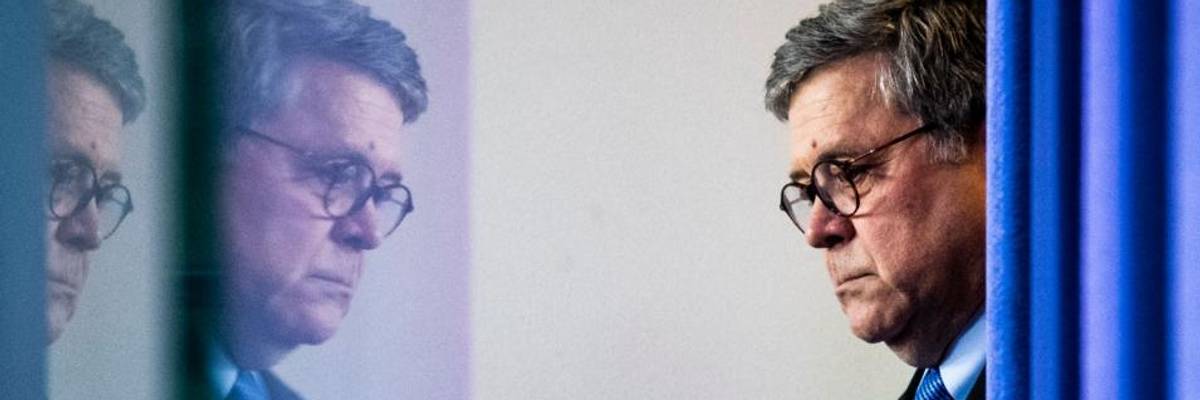Amid growing public calls by outside watchdogs and other lawmakers for the resignation or possible impeachment of U.S. Attorney General William Barr, members of the House Judiciary Committee late Friday afternoon called on Justice Department Inspector General Michael Horowitz to open an official probe into the politicization of the DOJ under Barr's leadership.
In a letter (pdf) sent to Horowitz just a day after it was announced that federal charges would be dropped against President Donald Trump's former national security advisor Michael Flynn, committee Chairman Jerrold Nadler (D-NY) said it was imperative for a full investigation to the behavior behind that decision and other troubling developments at DOJ.
"Like many Americans, we are deeply concerned by the Department's decision to move to dismiss the criminal case against Michael Flynn, who briefly served as President Trump's National Security Advisor," the letter stated. "Under a generous plea deal with Special Counsel Robert Mueller, Mr. Flynn was allowed to plead guilty to a single charge of making false statements to federal investigators and avoid prosecution for other serious alleged crimes."
The letter notes that the circumstances around the Flynn decision raise significant red flags and questions that must be addressed:
In measuring the impact of the decision to dismiss these charges, it is important to observe the divide between Attorney General William Barr and the career staff at the Department of Justice. Hours before the government moved to dismiss the case, Brandon Van Grack--an experienced prosecutor who had worked the Flynn case from its inception--abruptly withdrew from the matter. On the merits, the government's argument for dismissing the case appears to be inaccurate, politically biased, and inconsistent with the Department's own guidelines. The government's brief is signed only by Timothy Shea--the acting U.S. Attorney for the District of Columbia, promoted from the Attorney General's personal staff to his current post earlier this year--and not by a single career prosecutor.
The letter also states that while the Flynn case all by itself "would smack of corruption and unacceptable political influence in an ongoing criminal matter," it is "hardly the first time that Attorney General Barr has appeared to reach into an ongoing criminal case to do the [Trump's] political bidding." The lawmakers, in their letter, then list a series of episodes of seeming impropriety by Barr, including:
- On March 24, 2019, the Attorney General sent a four-page "summary" of the Mueller Report to the House and Senate Judiciary Committees--a summary that sought to minimize the Special Counsel's findings about the President and his associates. Special Counsel Mueller later wrote in protest: the gross mischaracterizations in Barr's memo sought to create "public confusion" and threatened "to undermine a central purpose for which the Department appointed the Special Counsel."
- On July 17, 2019, the Department quietly closed its investigation into certain campaign finance crimes allegedly committed by President Trump and his longtime attorney Michael Cohen.
- On February 11, 2020, the Department abruptly reversed course and argued for a more lenient sentence for Roger Stone, a longtime confidant to President Trump. As with the Flynn case, the Department appeared to have reacted to a series of public statements from the President.[7] As with the Flynn case, all four assistant U.S. Attorneys prosecuting Roger Stone chose to withdraw from the case rather than support the Department's position.
- On March 16, 2020, the Department suddenly dropped its two-year prosecution of a Russian company alleged to have interfered in the 2016 presidential election and charged with conspiring to defraud the United States.
In their request to Inspector General Horowitz, Nadler and his colleagues call on him to explore--among other possible issues--"a pattern of conduct that includes improper political interference, ignoring standards for recusal, and abrogating Attorney General guidelines."
"The American people deserve to know the full extent of the politicization of the Department of Justice," the letter concluded. "They deserve a Department that is guided by the facts and the law, and not by the President's political interests."




